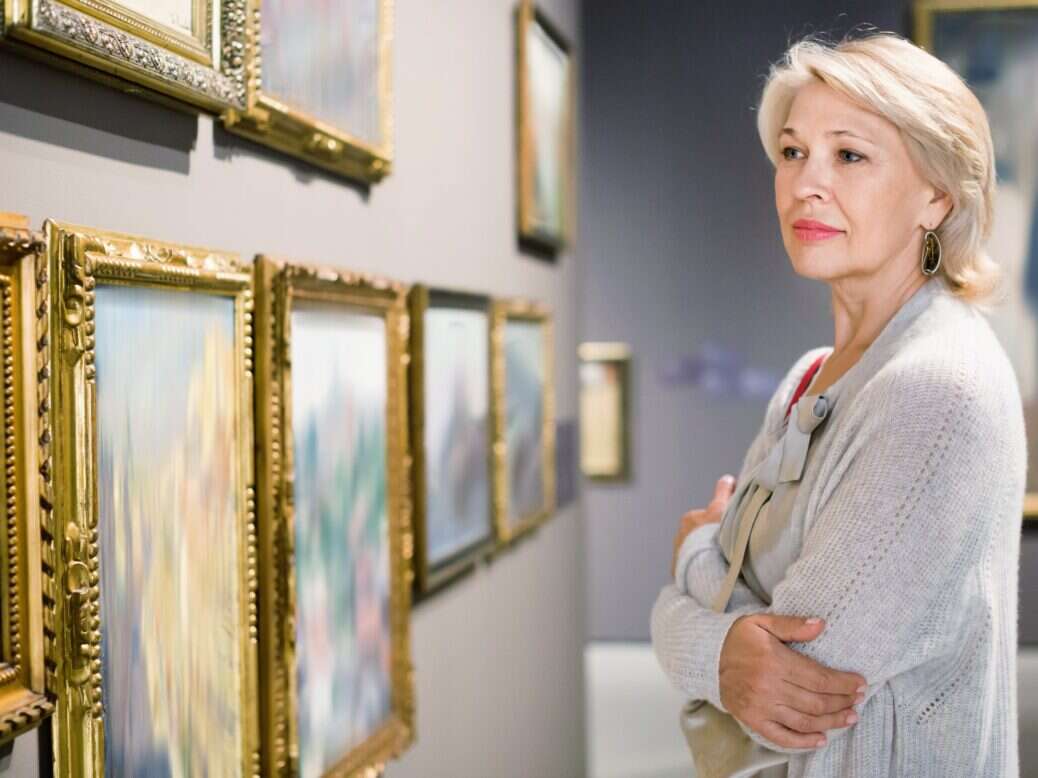
Passion collecting is a deeply enjoyable and personal process. Over time, most people will see their knowledge of a specific field grow, while also witnessing a potential increase in the value of their collection.
From fine art, sculpture and antiques, to watches, cars, wine and spirits, passion investments can both feed personal interest and grow the value of one’s estate. The most niche or unusual of interests can spark significant returns — the British Guiana postage stamp, for example, sold for $9.4 million at Sotheby’s, New York.
However, passion and knowledge alone will only get you so far. Elite Traveler spoke to Monica Heslington, head of the Goldman Sachs Family Office Art & Collectibles Advisory and Minerva Pinto, vice president trust officer and also part of Goldman Sachs Art & Collectibles Advisory Group, to understand the key considerations when beginning your own collection.
Take your time
“The first piece of advice I give to people who are looking to begin any form of collection is to avoid buying the first thing they see,” says Heslington.
Many of those who are just starting out in the world of collecting are eager and want to get the ball rolling as soon as possible. This is unwise and can often lead to costly mistakes. “Buying something without training your eye and seeing what really resonates with you is a mistake I see regularly,” adds Heslington.
“Those looking to begin a collection should spend as much time researching it as possible. If it’s art, that means going to museums and galleries and spending time discovering your own personal taste.”
That knowledge of one’s own preferences, and what is happening in the wider market, is essential. Firstly, it helps to prevent a buyer from paying over the odds on their first piece which may then have little investment potential. Secondly, it allows the buyer to nurture and develop a collection that speaks to their own desires and requirements.
“Start at the Mesopotamian wing and work your way forward to the present day,” Heslington says of those early gallery visits. “Keep an open mind, don’t be transfixed on just American or European art, look to Africa and Asia as well, the creativity that can be seen on a worldwide level is amazing.”
Theses considerations can be beneficial for all types of collections, be it art, watches, cars, jewelry and many more. Take your time, research, keep your mind open, and explore options worldwide.
“Look at everything, and while you are doing that, take pictures of what you like, what stands out to you, what resonates with you. Quickly you will begin to notice a pattern forming,” adds Heslington. “Once you have that starting point, the next step is to decide on what you’re willing to spend.”
Set your budget
A common theme that is regularly mentioned by experts and buyers themselves is that collecting is an addictive process. Be it purchasing your first piece, hunting for a hidden gem, getting a great deal, or perhaps the exciting process of bidding at a live auction, many collections quickly grow.
“Most people start small and end up having grand plans,” says Heslington, “sometimes a small interest can quickly snowball into a sizable collection.”
In order to keep this in check, setting a budget is essential. In addition to preventing your collection from getting out of hand, your budget will also help focus your search when you are looking for your first few pieces.
“Are you comfortable spending $1 million or above on a single item or are you more around the $10,000 range?” says Heslington. “Be it cars, art, wine, or whisky, understanding your budget and how far it will stretch is vital for a newcomer.”
Once you fully understand where your interests lie and where your budget sits it’s time to call the experts.

Talk to experts
“Irrespective of what it is you are collecting, there will usually be an expert who closely follows the market and will be able to inform you on the direction things are moving,” says Heslington. “If someone is going to make a purchase that for them is significant, or they are doing so with the hope of investment, it is almost always a good idea to contact an expert.”
An advisor will be able to do price research to ensure you are not paying over the odds. Additionally, they will be able to teach a collector the things they should be looking out for, furthering their knowledge and getting them to the stage where they can begin to make decisions more independently.
“Each collectible sub-market has its own key elements that affect a piece’s value,” adds Heslington. “For art and cars, condition and provenance is key, has a piece been restored? For wine, how it has been stored is incredibly important. An expert will know exactly what to look for and help you avoid unforeseen errors.”
Discussing with an advisor does not have to be a lengthy and expensive process, many are available at an hourly rate to just give a quick gut check to greatly reduce the chance of a major error. Goldman Sachs Private Wealth Management is well-versed in connecting clients with experts in a particular field so they are making informed decisions.
A valuable collection is an organized collection
Finally, when it comes to curating your own collection — especially if you see it as an investment — accurate and thorough organization is essential, or pieces may rapidly lose value.
“Considering effective collection management is definitely important when beginning,” says Pinto “What are you buying? How much did you pay? Who owned it before you? Where is the piece stored?”
If you are planning to develop a larger collection, having a digital database that can effectively present this information will be extremely useful. This is another area an advisor will be able to help with.
“We see a lot of clients who bequeath art to their children, and their kids have no idea what they are looking at,” adds Pinto. “Keeping a good inventory can allow this process to be as smooth as possible.”
“When purchasing it’s important that whomever you are buying from can provide you with a dossier of all the information about the piece,” says Heslington.
If you eventually come to sell a piece, this will ensure you have all the detailed provenance to be able to accurately value your item and prove its authenticity.
By following these considerations, you can begin your journey in collecting, ensuring the process is as enjoyable and fulfilling as possible. Advisors at Goldman Sachs Private Wealth Management are available to guide you along with process, and can get you in touch with external advisors and experts for each stage.
General Disclosure
This material is intended for educational purposes only and is provided solely on the basis that it will not constitute investment advice and will not form a primary basis for any personal or plan’s investment decisions. While it is based on information believed to be reliable, no warranty is given as to its accuracy or completeness and it should not be relied upon as such. Goldman Sachs & Co. LLC. (“Goldman Sachs”) is not a fiduciary with respect to any person or plan by reason of providing the material herein. Information and opinions expressed by individuals other than Goldman Sachs employees do not necessarily reflect the view of Goldman Sachs. This material may not, without Goldman Sachs’ prior written consent, be (i) copied, photocopied or duplicated in any form, by any means, or (ii) distributed to any person that is not an employee, officer, director, or authorized agent of the recipient. Investing involves risk, including the potential loss of money invested. Information and opinions provided herein are as of the date of this material only and are subject to change without notice. The Goldman Sachs Family Office (“GSFO”) provides art advisory services, such services are educational in nature. GS does not recommend the purchase of art or collectibles as an investment strategy, nor does it provide formal or informal appraisals of the value of, or opine on the future investment potential of, any specific artwork or collectible. GSFO may refer clients to Network Service Providers for possible provisions of services including but not limited to family and wellness services, administrative services, and travel and entertainment services. Services provided by Network Service Providers are wholly independent of those provided by GS. GS is not liable for clients’ ultimate selection and utilization of such Network Service Provider, for any services rendered or guidance received, or for the results or consequences arising from any such referral and makes no guarantee as to the quality of services provided by Network Services Providers.
© 2022 Goldman Sachs. All rights reserved.
